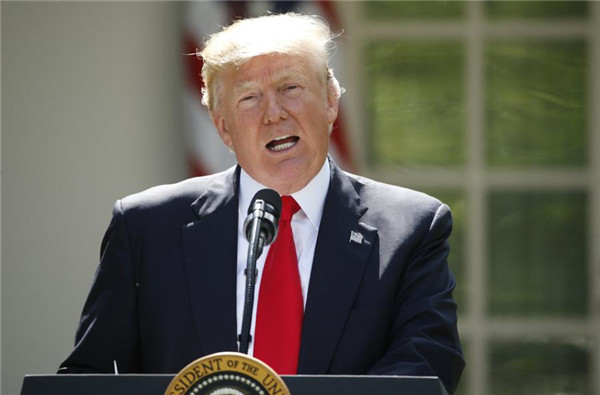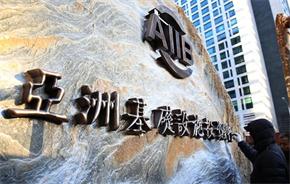It's the planet, stupid, not China's global leadership
By Chen Weihua (China Daily) Updated: 2017-06-09 07:37
 |
|
US President Donald Trump announces his decision that the United States will withdraw from the landmark Paris Climate Agreement, in the Rose Garden of the White House in Washington, U.S., June 1. [Photo/Agencies] |
It was sad to hear US President Donald Trump's announcement last week to withdraw the United States from the Paris climate change agreement. And it's puzzling to see so many people interpreting it as the US ceding the global leadership to China.
The Paris accord, adopted in December 2015 and signed by 195 United Nations member states, is about efforts to combat climate change rather than a geopolitical jostling between the US and China. It was actually the close cooperation between the two countries and their determination and commitment to combat the global challenge that led to a relatively speedy acceptance of the Paris agreement. And the US was expected to play a leading role in implementing the accord despite the agreement not being enough to limit the average global temperature rise to 2 Celsius above pre-industrial figures. Therefore, the US' withdrawal will jeopardize global efforts to save the planet.
Yes, it will also be a blow to US leadership in the world. But focusing on or condemning it as the US ceding global leadership to China is simply a wrong approach.
"Trump hands the Chinese a gift: the chance for global leadership," read a headline in The New York Times on June 1. "If Trump doesn't want a world leadership role, China will take it" was the headline of a June 2 article on US News and World Report. Similar claims by climate experts, such as Barbara Finamore of Natural Resources Defense Council, were even more surprising. "Trump's Paris withdrawal cedes global leadership to China" was the title of her article on NRDC website on June 2.
Officials and climate experts in the NRDC, a global environmental advocacy group, should focus more on how Trump's decision is going to ruin the planet, rather than on China assuming or not assuming global leadership. If there is a race in clean energy, it should be a friendly one because the world, especially the developing world, needs more clean technology. It shouldn't matter whether it comes from China, the US, the European Union or any other economy, because the aim is to fulfill the goals set in the Paris agreement.
Politicians, political pundits and climate experts, like former US vice-president Al Gore, are happy that China, India, the EU and the US state of California have reiterated their commitment to the Paris agreement and vowed to do even more to save our planet. Premier Li Keqiang made that statement publicly during his visit to Europe last week.
China cannot celebrate the US' withdrawal from the accord or the void it has created in global climate leadership, as some in the US have speculated. It would indeed serve China's interest if the US remains a party to Paris accord. Unlike the US, China has never claimed to be a global leader even though it is playing such a role in some areas, especially climate change. Given the severe air pollution, China is facing a huge challenge on the environmental front. Yet its success in harnessing clean energy and determination to fight climate change have impressed the world.
Beth Gardiner, a London-based environmental journalist, wrote last month from East China's Zhejiang province that Chinese manufacturing has changed the economics of renewable power around the world, making solar power generation cost-competitive with electricity generated from fossil fuels like natural gas and even coal. So instead of sounding sour on China's success in the clean energy sector, people should celebrate it. The world can be a better place if every country steps up to play a leadership role and fill the huge void created by the US' pullout from the Paris pact.
It's a pity that some people see the great cause of combating climate change through their narrow geopolitical lens.
The author is deputy editor of China Daily USA. chenweihua@chinadailyusa.com

Last weekend, I was hanging out downtown with a friend and my sister. We were walking through a public spare when all of a sudden a heated argument between a student and a middle-aged woman arrested our attention.











